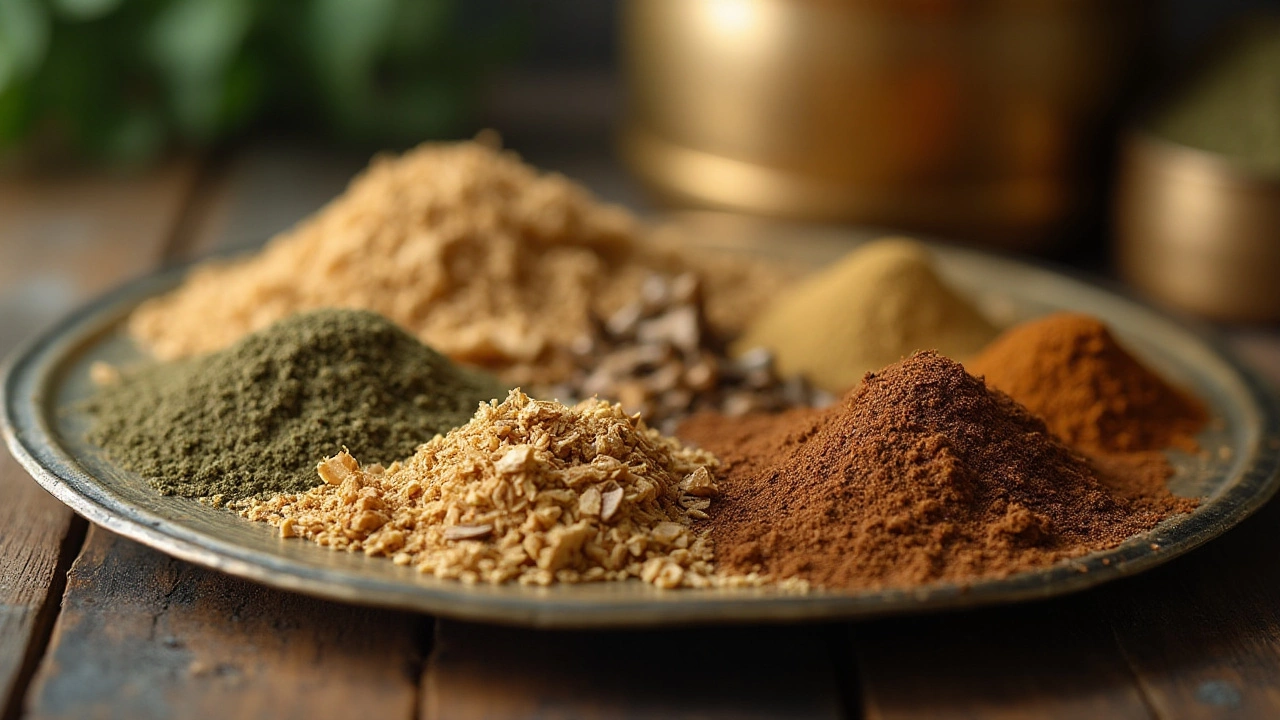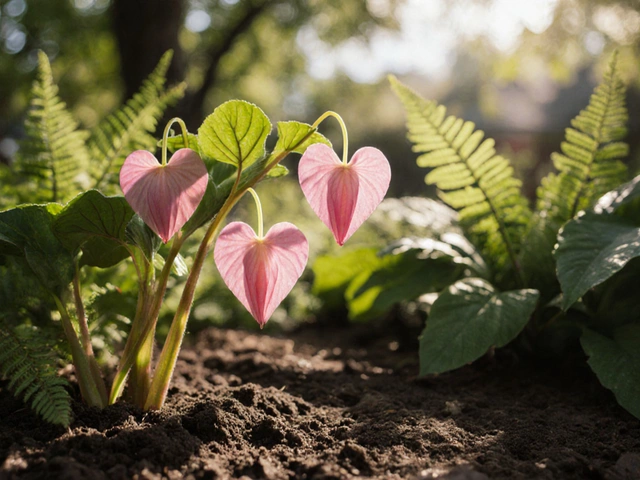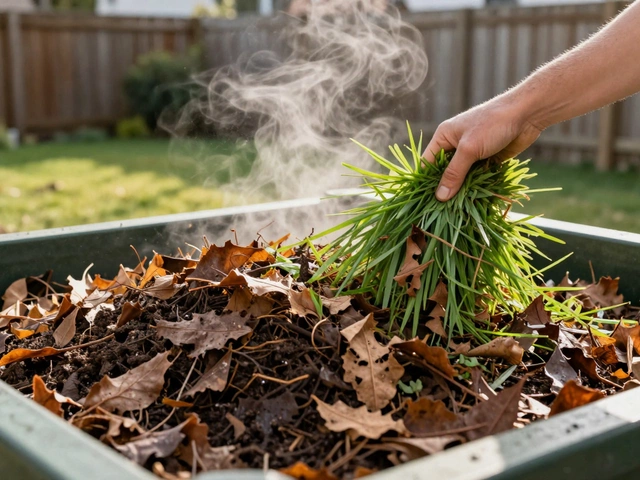Composting is not just a trend for the environmentally conscious—it's a smart way to reduce waste and enrich soil. But how does one accelerate that notoriously slow process? The secret lies in compost activators, those subtle heroes that feed the fire of decomposition. These activators are not just an optional upgrade; they can be game-changers in your composting journey.
Imagine composting as having a team of underground chefs tirelessly breaking down organic material. The more efficient they are, the quicker you'll have that rich, dark compost that your garden craves. Compost activators, comprised of carefully selected nutrients and microbes, are like giving those chefs an energy drink to power through their workload.
As you delve into this article, you'll uncover the various types of compost activators—each with its unique enhancements—and the multitude of benefits they bring to your pile. Whether you're a seasoned composter or just beginning, understanding and utilizing compost activators could be the catalyst you need to transform kitchen scraps into black gold efficiently.
- Understanding Compost Activators
- Types of Compost Activators
- Benefits of Using Compost Activators
- Tips for Effective Composting
Understanding Compost Activators
In the vibrant world of composting, the term compost activator often pops up as a crucial component for producing quality compost. But what exactly is it? A compost activator is a blend, typically made of natural materials, designed to jumpstart the composting process. Think of it as a catalyst that sparks life into your pile, speeding up the decomposition of organic matter. Have you ever wondered why some compost piles steam on chilly mornings? It's largely thanks to activators that create a hotbed of bacterial activity. Now, these activators aren't a magical wand but more of a nutritional boost to your compost heap, providing an enriched environment for microorganisms, which in turn work efficiently to break down the organic materials.
What makes this process fascinating is the science at play. When you add a compost activator to your pile, you're essentially enriching the mixture with high levels of nitrogen, enzymes, and beneficial bacteria. These elements are key to the decomposition process, encouraging a rapid breakdown of materials like leaves, grass clippings, and kitchen scraps. Compost activators can come in various forms—both commercial and homemade—and might include ingredients like dried blood, alfalfa meal, seaweed, and bone meal. Each of these ingredients plays a unique role by supplying different nutrients and enhancing microbial activity.
In practice, identifying the best activator for your compost can sometimes be a journey of trial and error. However, some guidelines might make those first steps a bit smoother. When choosing a commercial activator, it's important to review its composition to ensure it complements your existing mix of materials. Homemade options, on the other hand, provide flexibility and are a cost-effective way to boost your compost's health. An often-cited gem in the realm of composting comes from renowned permaculture expert Bill Mollison:
"Composting is not a science, it's an art. You fine-tune nature's processes over time."His words remind us of the importance of experimenting and learning from the delicate balance between ingredients and natural processes.
Modern composting has also been bolstered by research, showcasing the impact of activators. Data collected over decades highlight interesting facts such as a reduction in the time it takes for compost to mature—a benefit directly attributable to the strategic use of activators. This efficiency does not only improve the turnaround of producing valuable compost but also supports better resource management by diverting kitchen waste from landfills faster. Looking at the bigger picture, microbial efficiency plays a direct role in the fertility of the resulting compost, making it richer in nutrients and highly beneficial for soil health.

Types of Compost Activators
In the world of composting, not all activators are created equal. They come in various forms and serve different purposes in helping us achieve that nutrient-dense, crumbly compost that we and our gardens adore. The basic idea behind a compost activator is to speed up the decomposition process, making it more efficient and less odorous. By introducing specific nutrients and beneficial microbes, these activators enhance microbial activity and bring balance to your compost pile.
One of the most common types of activators is nitrogen-rich additives. They're often called "greens" due to their high nitrogen content. Materials like fresh grass clippings, coffee grounds, and kitchen scraps not only add a necessary burst of nitrogen to the mix but are also usually readily available. This abundance makes them an economical choice for many home composters. But it's not just about throwing these items into your compost heap; it requires a bit of knowledge.
Another intriguing option is commercial compost starters or inoculants. These come as packaged mixtures of bacteria and fungi designed to rapidly kickstart the breakdown of organic material. Such products are typically used when a compost pile seems sluggish or unproductive. These commercial mixes may boast of specific microbial strains known to accelerate the decomposition process significantly.
According to the National Gardening Association, introducing a pre-packaged starter can cut composting times by up to 50%, allowing faster turnaround from waste to rich soil amendment.
Then, there are additives like manure and meal-based products, which also play their crucial roles as activators. Manure from herbivores like cows and horses is a powerhouse of microbes and nutrients that pushes compost to decompose at an efficient pace. These additions might seem old-fashioned, but they have stood the test of time. They also bring an added benefit: improving moisture retention in compost piles, which is essential for maintaining that active microbial environment.
For those intrigued by a natural alternative, consider seaweed. This might not be the first thing that comes to mind for inland dwellers, but it's surprisingly effective due to its high mineral content. Seaweed acts as a mineral-rich superfood for compost piles, supplying potassium, magnesium, and other trace nutrients. If you happen to be near a coastline, utilizing this resource, sparingly and in compliance with local regulations, could yield excellent results.
Understanding the specific needs of your compost pile is the key to employing the right compost activator. You can mix and match these components to create a tailored solution that ensures a productive and efficient composting cycle. Once you know the needs of your pile, consider experimenting to see what combination works best for your specific environment and organic waste types. This continuous tweaking can become a satisfying process that produces a perfect blend suited to your gardening needs.

Benefits of Using Compost Activators
Embracing the use of compost activators can transform your composting efforts into a more efficient and rewarding process. These activators are not merely additives—they are a powerhouse that charges up the natural process of decomposition. The primary benefit lies in the speed with which composting occurs. By injecting beneficial microbes and nutrients directly into your pile, activators significantly reduce the time it takes for organic waste to break down into rich, usable compost. This means a quicker turnaround from raw scraps to garden-ready soil, which is vital for gardeners eager to improve their garden's vitality.
Moreover, compost activators play a crucial role in enhancing the nutritional profile of your compost. They help boost the carbon to nitrogen ratio, a critical factor in balanced composting. When this balance is properly managed, it results in higher quality compost that provides essential nutrients to your plants. The addition of compost activators ensures a healthy assortment of microorganisms in your compost pile, fostering an environment where beneficial bacteria, fungi, and even earthworms can thrive. This biological diversity not only enhances the decomposition but also leads to more robust soil health when applied to gardens.
Another notable advantage is the reduction of foul odors associated with composting. The microorganisms within activators digest the organic materials more efficiently, breaking down potentially smelly compounds. This means you can maintain a compost pile in your backyard without worrying about unpleasant smells wafting through your property. Additionally, a well-maintained compost pile bolstered with these activators can help mitigate pest issues. Fast decomposition means less time for curious creatures to be attracted to the pile, thus keeping unwanted pests at bay.
Activators also bring an element of environmental stewardship into play. By speeding up the decomposition process, these additives enable more rapid recycling of organic waste back into the ecosystem. This not only benefits individual gardeners but contributes to a reduction in landfill waste on a broader scale. The cumulative reduction of greenhouse gases from waste decomposition in landfills, combined with improved soil carbon sequestration, makes the use of compost activators a valuable part of sustainable gardening practices.
A study published in the Journal of Environmental Management noted that enriched compost, developed with the help of activators, significantly improved plant growth compared to traditional methods. This reflects the crucial role activators play in promoting efficient and high-quality composting that benefits not just the soil but the plants themselves.
Finally, it's essential to appreciate the enhanced microbial activity that compost activators encourage. This improved biological activity means that the mature compost produced is teeming with life, ready to rejuvenate tired soils with vigorous microorganisms and essential nutrients. In turn, gardens become more resilient, plants become more robust, and ecosystems become healthier. By understanding and utilizing the myriad benefits of compost activators, you contribute to a cycle of growth and renewal that supports both personal gardening ambitions and global sustainability efforts.

Tips for Effective Composting
Creating a thriving compost pile doesn't happen by accident. There's an art and science to it, combining the right mix of materials with an understanding of the natural processes at play. To start, consider the balance of materials you introduce into your compost. Aim for a favorable mix of 'greens' and 'browns'. Greens are rich in nitrogen and include things like vegetable scraps, coffee grounds, and fresh grass clippings. Browns are carbon-rich materials like dried leaves, straw, and twigs. Striking the right balance, often in a 1:3 ratio of greens to browns, provides the ideal environment for microorganisms to flourish.
Another key factor in effective composting is moisture. A compost pile should resemble a wrung-out sponge—moist but not soggy. Too much water can drown your pile, causing unpleasant odors, while too little can lead to dryness and inactivity. Regularly check your compost's moisture level and add water accordingly, especially after turning the pile. Speaking of which, aeration is another pillar of successful composting. Turning the pile every couple of weeks introduces oxygen, an essential element for aerobic bacteria that break down the organic matter. If aerobic conditions are maintained, unpleasant smells are minimized, and the decomposition process is accelerated.
Compost activators can significantly enhance your compost pile's efficiency. These are materials added to introduce or boost the amount of microorganisms responsible for decomposition. Commercial activators often contain a blend of beneficial microbes and nutrients, or you can opt for natural items like alfalfa meal and grass clippings. Both choices help jumpstart microbiological activity, breaking down organic matter faster. Some gardeners also use nutrient-rich additives such as manure to expedite the process. In a recent interview on sustainable gardening, expert Michelle Chase said, "Think of compost activators as a cup of coffee for your compost: an energizer that gets the pile working at full speed."
According to a survey in 'Organic Gardening Magazine,' gardeners report a 30% faster decomposition when utilizing natural activators.
If you encounter issues, they can often be traced back to the aforementioned factors. Excess viscosity? You've probably added too many greens or not enough browns. Does the pile seem stagnant? Try turning it more frequently or incorporating a compost activator for a microbial boost. By maintaining this balance and paying attention to these elements, you'll find that composting transforms from a chore into a satisfying cycle of creation that nourishes your garden while reducing waste. Remember, patience is vital, and over time, you'll learn what your unique compost setup requires for peak performance.
Composting Beyond the Basics
Taking your compost to the next level involves more than just understanding the basics. Once you have a handle on what works for your setup, consider monitoring the temperature of your pile. A hot compost pile, ideally between 135 to 160 degrees Fahrenheit, suggests active decomposition and a healthy microbial community. Investing in a compost thermometer can give you insight into the inner workings of your pile, allowing you to adjust materials accordingly. And don't underestimate the potential of new technologies. Aeration systems that automatically turn your compost or digital moisture sensors can take some guesswork out of the process. What's most important is tailoring the composting method to your lifestyle and garden needs, ensuring a seamless integration into your routine that reaps sustainable, long-term benefits.





